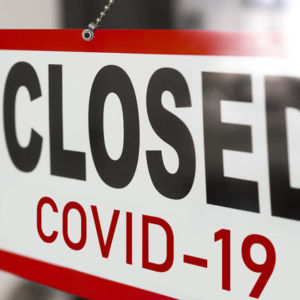Millions of Americans are in the penalty box as we speak.
They have followed the advice of state and local officials and they have stayed home to stop the spread of COVID-19.
Businesses are on hold, birthdays are canceled, travel is limited, and we are glued to our screens to see how this all ends. While some of us have been able to carry on work, essential or not, during this trying time, that’s just not possible for most.
More than 16 million Americans have filed for unemployment benefits since lockdown orders went into effect in mid-March, and economists say we could face as high as 20 percent unemployment by summer.
It is certainly true that many states and cities have saved lives by ordering us to stay home. But blanket lockdowns are now flattening our livelihoods in a way that’s more dangerous than this pandemic.
Danish political scientist Bjorn Lomborg says that by closing all schools and jobs, we are “actually creating more damage, more long-term death, more long-term unemployment and unpleasantness for the whole population compared to what you’re achieving in saving lives.”
He’s right. It’s why Austria and Denmark have already begun to relax their lockdowns and open up their economies, but with social distancing rules still in effect. European leaders see the real damage that has been done to societies, and it is time to turn the tide while remaining responsible.
That is exactly what the American people can do as well.
We can still be responsible by socially distancing where necessary, wearing facemasks, quarantining at-risk groups, and using technology to track the spread of the virus. That is what countries going back to work have done since the start.
That will be more effective than forcing businesses to shutter, driving many of our compatriots to foodbanks or the brink of homelessness.
We have to look no further than our own hospitals.
It is true that many health facilities in major cities are overwhelmed, and we should be sending them every resource where possible.
But by canceling elective surgeries and operations that feed their budgets, rural and county hospitals have ironically begun laying off hundreds of thousands of health professionals and administrative staff. This is not because they are overwhelmed with COVID-19 patients but rather because they do not have any patients at all.
If we are losing health professionals during a pandemic, then we are doing something wrong.
A one-size-fits-all-approach is usually misguided in our federal system, and it’s wrong now. There are 27 states that have had less than 100 fatalities, yet are still imposing crushing lockdowns. It is no wonder so many are itching to get back to work.
It is time to admit lockdowns are not a universal answer to the crisis we face.
Many criticize President Trump for his desire to open up the American economy. But his anxiety is a signal to workers and entrepreneurs everywhere: the pain and suffering of the novel coronavirus are real, but losing your income and prospects for feeding your family is just as bad or sometimes even worse.
Americans are a robust, strong and resilient people. We understand that things may never be the same, but we should be trusted to continue our lives while following the guidance of our scientists and doctors. That is the balance we need to protect our livelihoods and save those most vulnerable.

